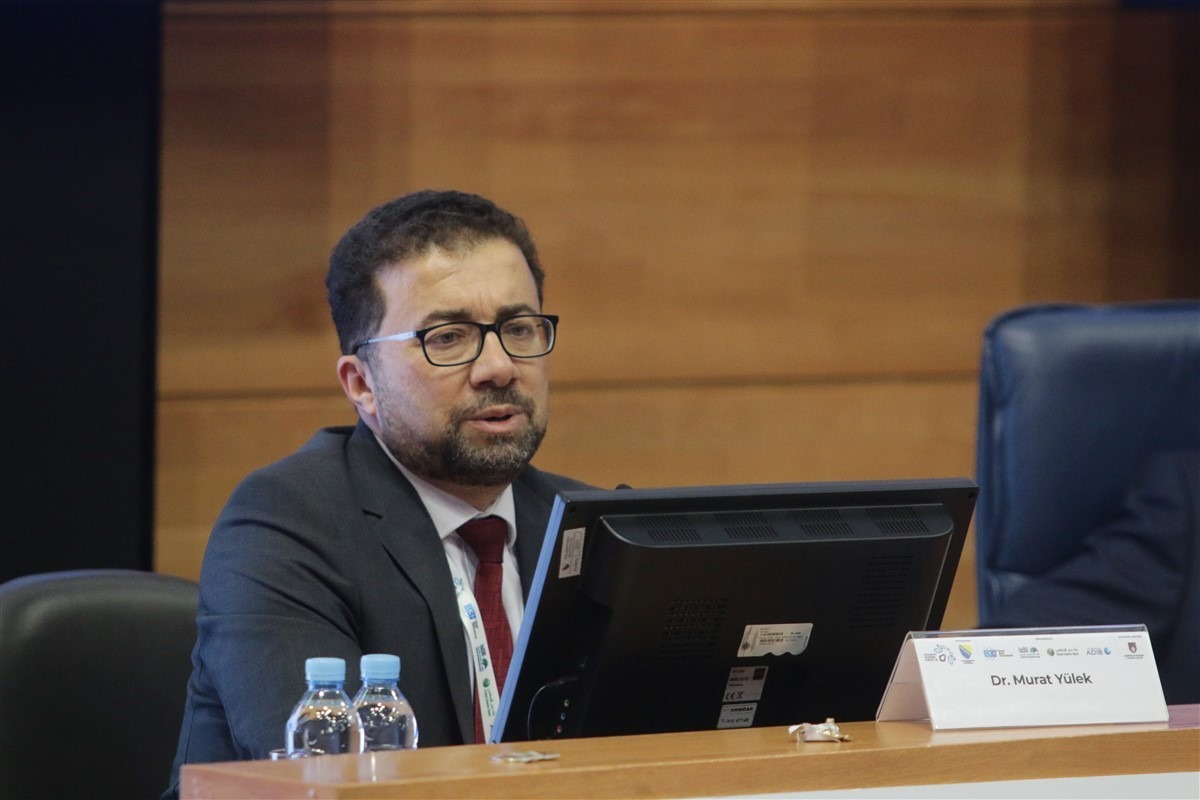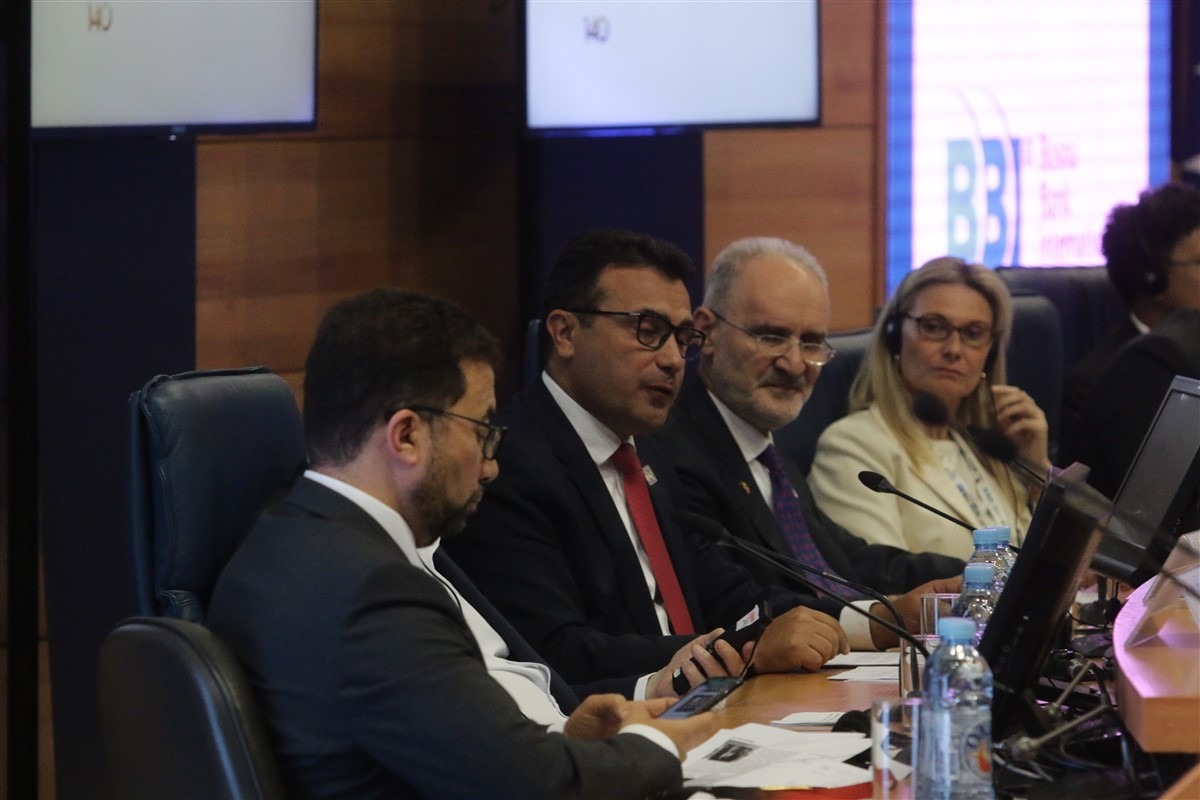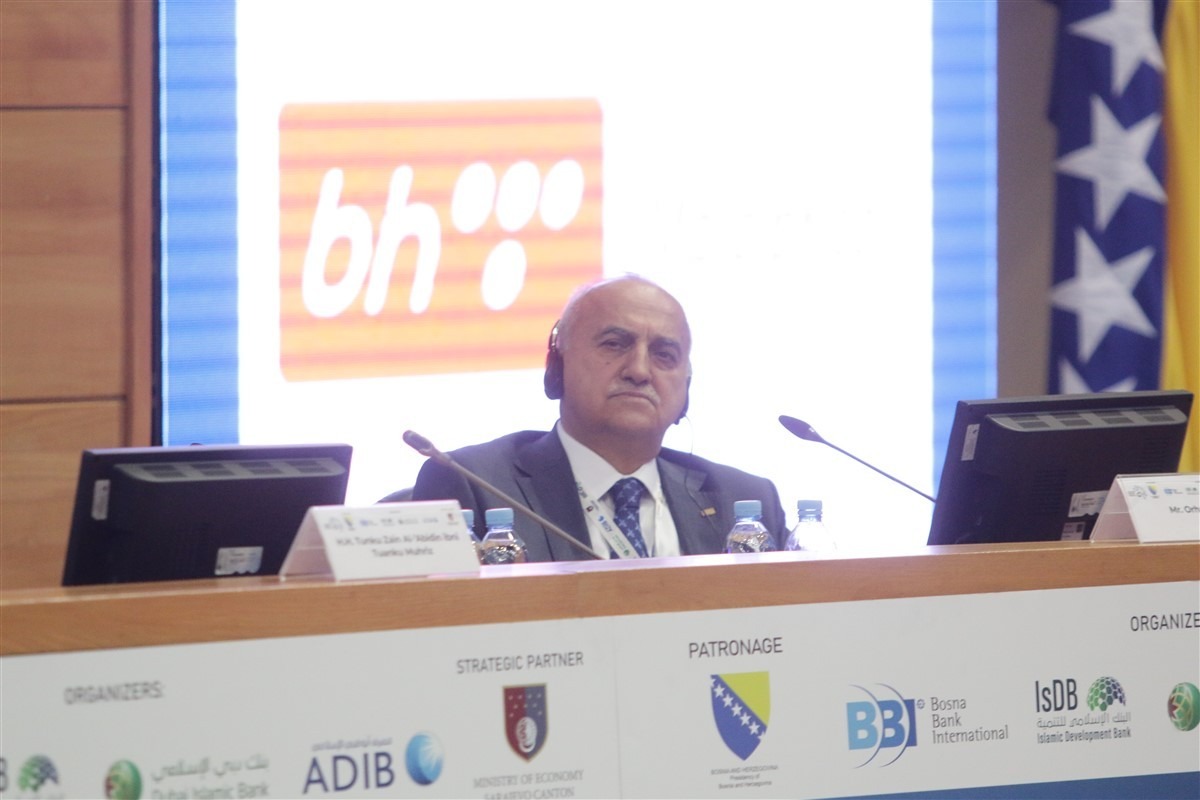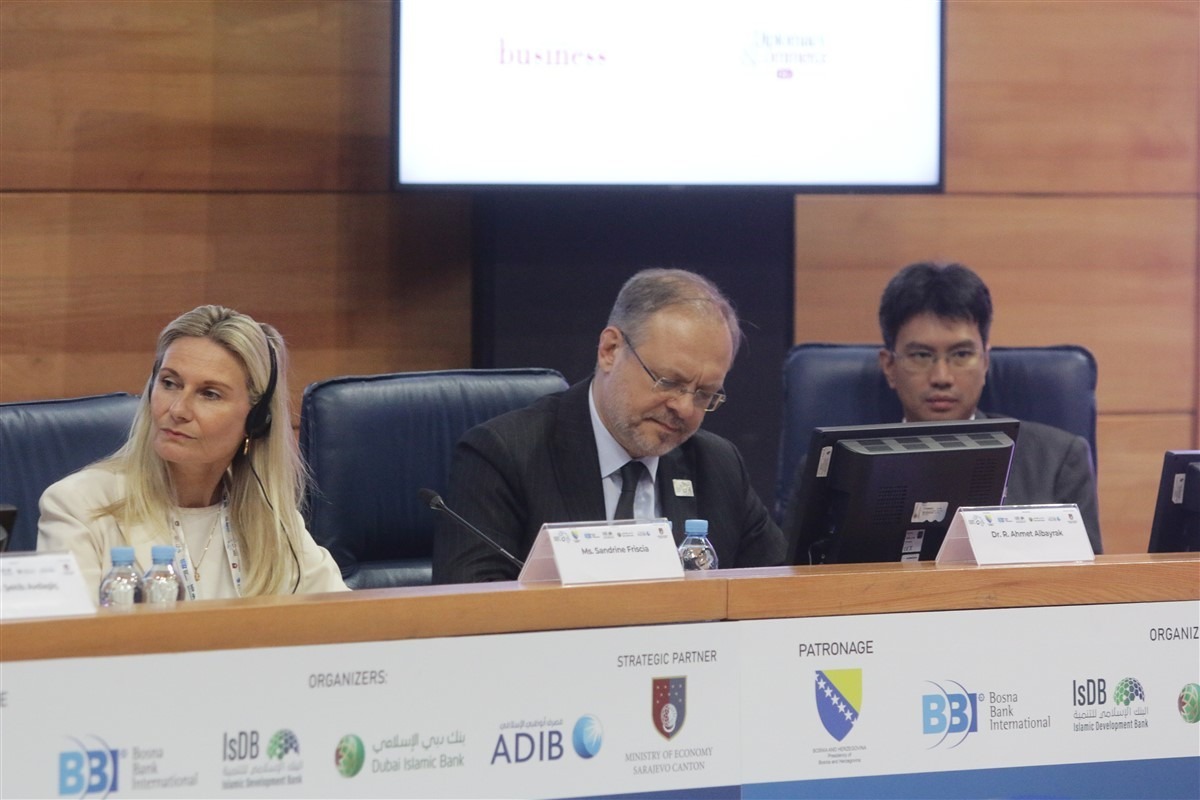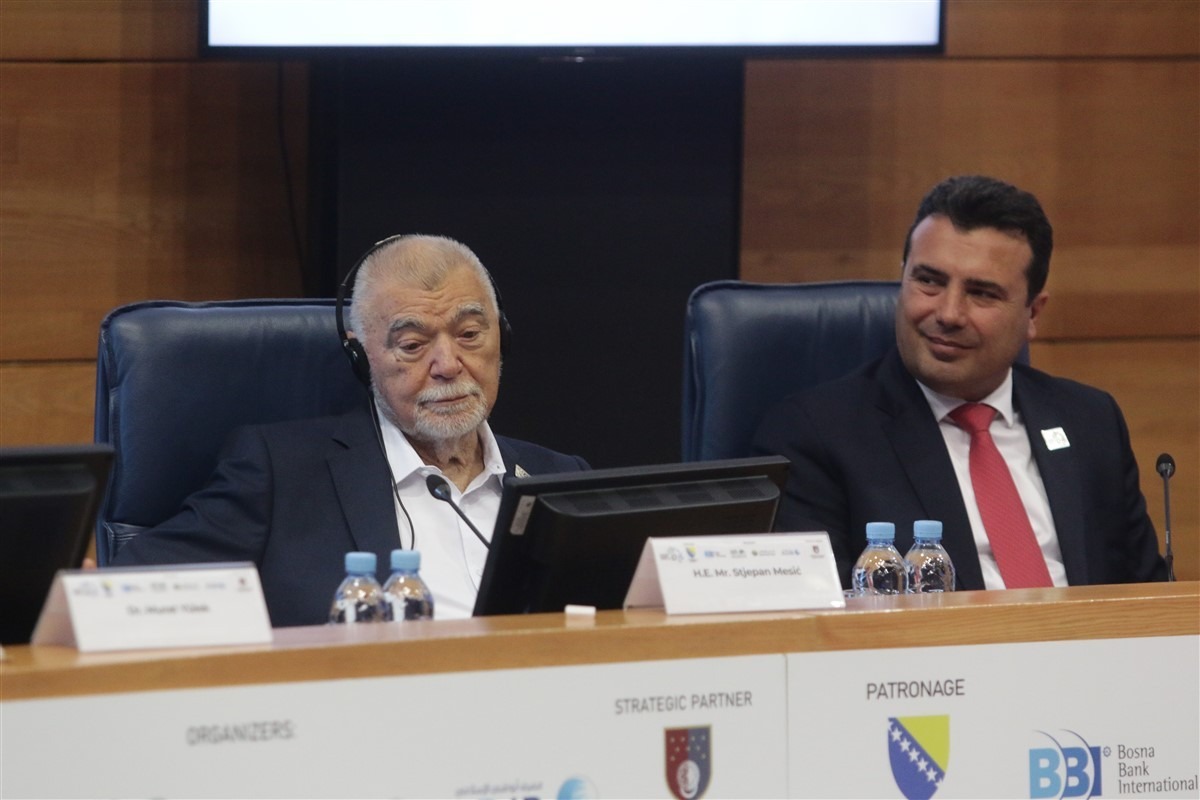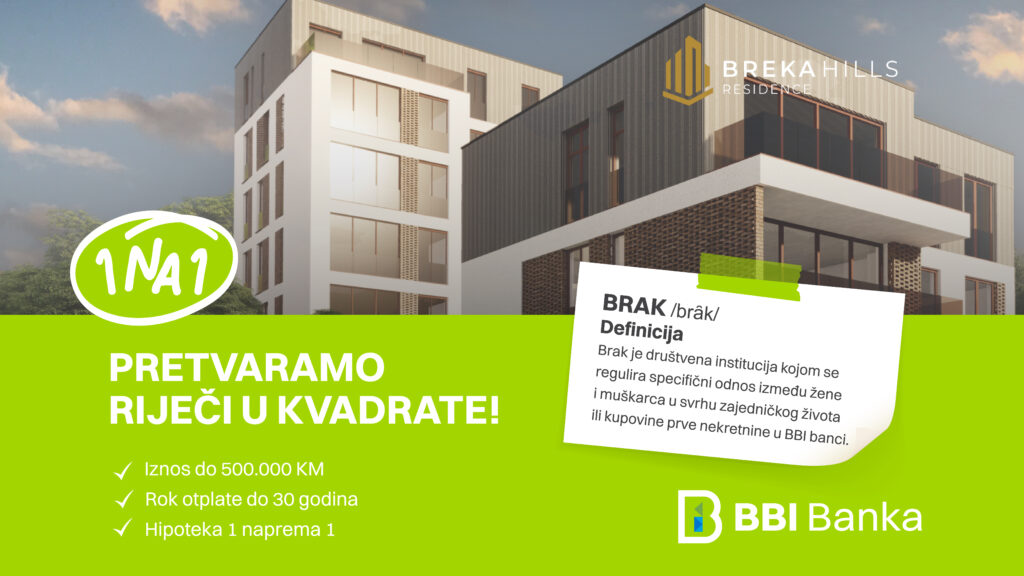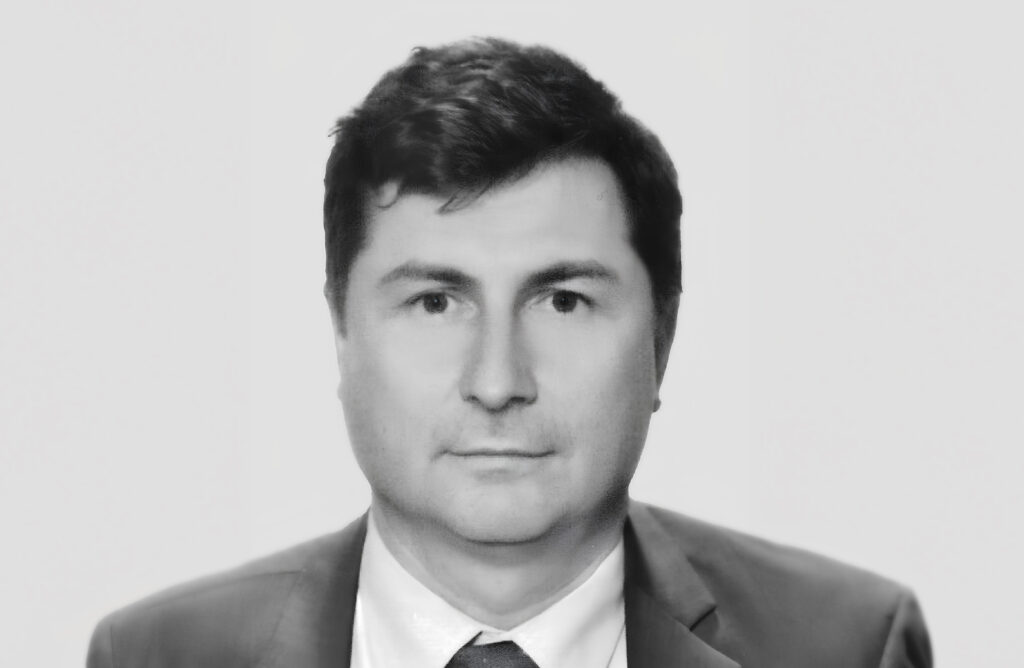Prvi dan 11. Sarajevo Business Foruma govorilo se o ekonomskoj saradnji zemalja Zapadnog Balkana, te mogućnostima zajedničkog ekonomskog prosperiteta. U uvodnom govoru na početku tematskog panela „Ekonomski oporavak nakon COVID-a – prilike za zaokret?“ u ime Vlade Švicarske obratio se Erwin Bollinger, voditelj odjela za bilateralne ekonomske odnose, koji je istakao kako je bitno da se ojačaju veze Švicarske i zemalja Zapadnog Balkana, a u kontekstu trgovinskih razmjera i obostranim investicijama.
„Razmjena između Švicarske i zemalja Balkana, uprkos pandemiji, porasla je za 20% u periodu 2019. i 2021. Ovo je ohrabrujući signal, te je sve veći broj investicija ka Zapadnom Balkanu i sve veći broj proizvoda sa Zapadnog Balkana se uvozi u Švicarsku. Pandemija nam je otvorila neke nove mogućnosti. Ideja „nearshoringa“ donosi i kulturološku i geografsku prednost.“, rekao je Bollinger. Kao primjer dobrog modela prevazilaženja ekonomske krize uzrokovane pandemijom, Bollinger je naveo primjer švicarskih kompanija koje su razvile svoju otpornost i diversificirale svoju proizvodnju. Švicarska vlada je reagovala na način da je mala i srednja preduzeća stavila u fokus svojih mjera.
Stručnjaci iz regiona i svijeta govorili o ekonomskom, privrednom i društvenom oporavku nakon pandemije Covid-19, ali i prilikama za preokret koje mogu pomoći regiji i BiH u budućem razvoju. Svoja stručna mišljenja u sklopu prvog panela podijelili su Stjepan Mesić, bivši predsjednik Republike Hrvatske, Zoran Zaev, bivši premijer Republike Sjeverne Makedonije, Šekib Avdagić, predsjednik Istanbulske trgovinske komore (ITO), Ahmet Albayrak, izvršni potpredsjednik banke Kuveyt Turk, Sandrine Friscia, predstavnica Evropske investicione banke za Bosnu i Hercegovinu i Crnu Goru, Zain Al-‘Abidin ibni Tuanku Muhriz, osnivač i predsjednik Instituta za demokratiju i ekonomske odnose (IDEAS) iz Malezije, Orhan Aydin, član odbora Agencije za razvoj Ankare i član Vijeća za visoko obrazovanje TOBB, član Visokog savjetodavnog odbora OSBÜK-a i član izvršnog odbora ÜSIMP, te dr. Murat Yülek, osnivač i rektor Ostim tehničkog univerziteta koji je ujedno i moderirao ovaj panel.
Mesić je podijelio svoja iskustva iz regiona, te naglasio da je regija Zapadnog Balkana ovisna o investicijama drugih ekonomija, ali je isto tako ovisna o zajedničkoj političkoj i poslovnoj saradnji.
„Razvoj koji ide u pravcu podjele globalne ekonomije bi vodio ka katastrofi, te je potrebno da tražimo prilike i jačamo ekonomske i političke saradnje. Potrebno je više napora da zemlje stvore snažnu regionalnu sinergiju. Ljudi na Balkanu cijene mir, razvoj i saradnju, te ćemo jedino na taj način biti na dobitku.“, izjavio je Mesić.
Regionalne ekonomije trebaju da nastave put solidarnosti kako bi prevazišle globalne ekonomske posljedice. Zoran Zaev rekao je da je odgovor na COVID-19 pandemiju, zajednom sa ruskom agresijom na Ukrajinu, jedna od glavnih tema koja se reflektira na BiH i regiju.
„Ove krize pogađaju naše zemlje i naše partnere. Pozivam na regionalnu saradnju koju stavljam na prvo mjesto, zato podržavam proces kreiranja jedinstvenog tržišta na Zapadnom Balkanu. Vrijeme je da se brandira i promoviše region u njegovom punom potencijalu. Zapadni Balkan ima veliki potencijal za kreiranje alternativih izvora energije, atraktivni smo za velike globalne investitore koji ulažu u ovakve projekte. U vremenima kriza, štrajkova i blokada, dijalog je jedino rješenje.“, rekao je Zaev.
Dobra usluga, kapital i radna snaga trebaju imati protok. Pojedinačne zemlje Zapadnog Balkana su male da bi samostalno nastupile, te je nužno udruživanje snaga.
Sandrine Friscia, predstavnica Evropske investicione banke za Bosnu i Hercegovinu i Crnu Goru je rekla kako je zabilježen porast BDP-a na Zapadnom Balkanu, ali da inflacija, uzrokovana nizom faktora, i dalje raste.
„U svim zemljama su cijene hrane porasle, a došlo je do poremećaja i u trgovinskoj razmjeni i novim investicijama. Zapadni Balkan se suočava sa novim izazovima, te se moraju poduzeti mjere u energetskom sektoru. Ipak, privreda je zabilježila porast od 7,1%, a BiH ima nizak javni dug. Prema MMF-u očekuje se rast BDP-a narednih godina. Ubrzanje reformi i dobijanje statusa kandidata u EU će privući nove investicije. S krizama dolaze i prilike za jačanje veza u regionu. Spremni smo pomagati Bosni i Hercegovini u digitalnoj transformaciji i izvorima obnovljive energije.“, kazala je Friscia.
Šekib Avdagić, predsjednik Istanbulske trgovinske komore (ITO) je rekao kako je pandemija utjecala na privredu, ali je ukazala i na sve nedostatke u ekonomijama i politikama zemalja Zapadnog Balkana.
„Samo zemlje koje imaju dobar socijalno-ekonomski statut u svijetu imaju dobru perspektivu. U post-covid svijetu „nearshoring“ se pojavio kao alternativa. Za kompanije je najvažnije da su fleksibilne, te da se prilagode novim uslovima.“, istakao je Avdagić.
Ahmet Albayrak, izvršni potpredsjednik banke Kuveyt Turk je govoreći o pandemiji i njenom utjecaju na ekonomsku krizu izjavio da je potrebno dodatne napore uložiti i u socijalne aspekte društva.
„Ovo su prilike u ljudskom smislu. Pored finansijskih, potrebno je da uložimo i u humanitarne napore i da podržimo društvo i građane.“, rekao je Albayrak.
Zain Al-‘Abidin ibni Tuanku Muhriz, osnivač i predsjednik Instituta za demokratiju i ekonomske odnose (IDEAS) iz Malezije istakao je digitalnu evoluciju koja se događa na terenu i njen značaj na ekonomski oporavak nakon pandemije. Naglasio je važnost jakih domaćih institucija koje su od vitalnog značaja.
„Rješenja koja možemo ponuditi su veliki industrijski centri sa velikim brojem članova. U Turskoj takvi centri nude i usluge obrazovanja i zdravstva. Smatram da je Sarajevo Business Forum dobra platforma i prilika da ponudimo zajednička rješenja. Želimo da sa institucijama u BiH uspostavimo saradnju, a posebno nas zanima sektor drvne industrije, rješenja obnovljive energije, te razvoja novih tehnologija.“, rekao je Orhan Aydin, član odbora Agencije za razvoj Ankare i član Vijeća za visoko obrazovanje TOBB.
Sarajevo Business Forum 2022. će se nastaviti drugi dan 12. maja u Hotelu Hills, gdje su planirani tematski paneli, sponzorske prezentacije i poslovni b2b sastanci i promocija investicijskih projekata i poslovnih prilika kandidovanih za 11. SBF 2022.


